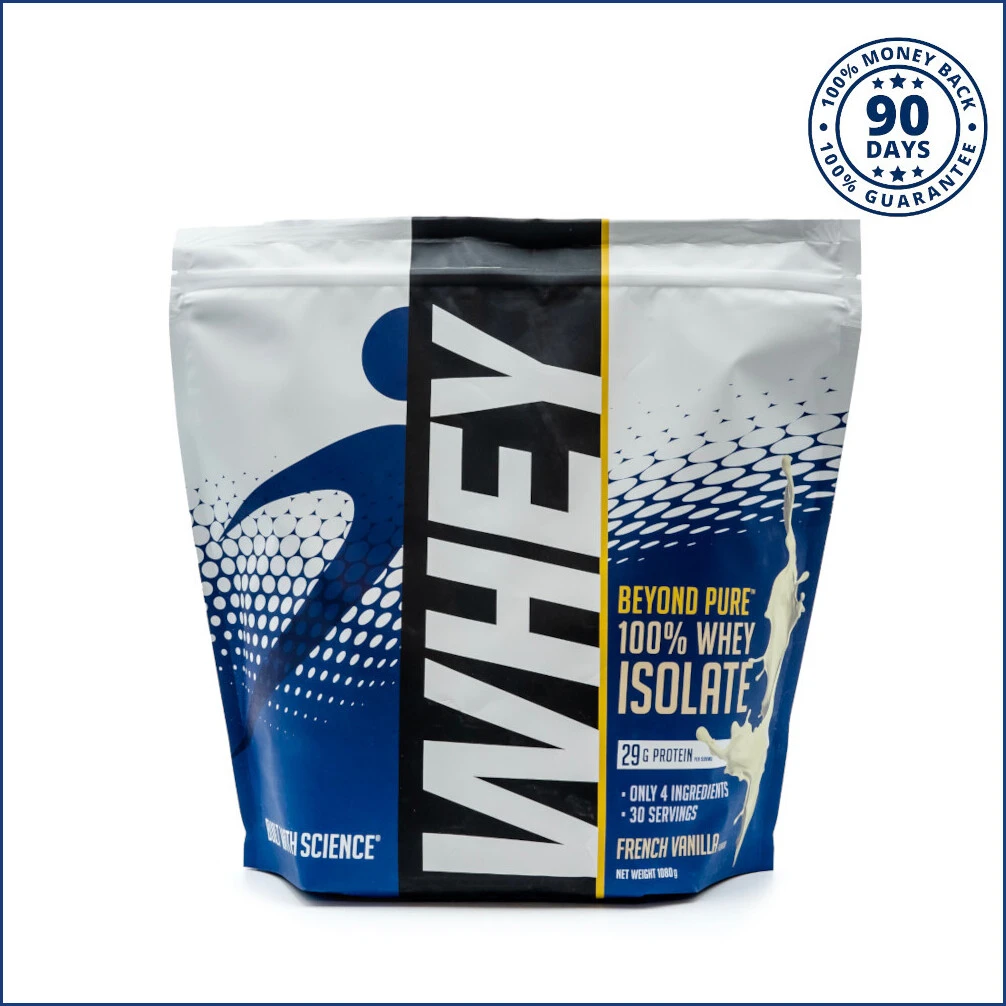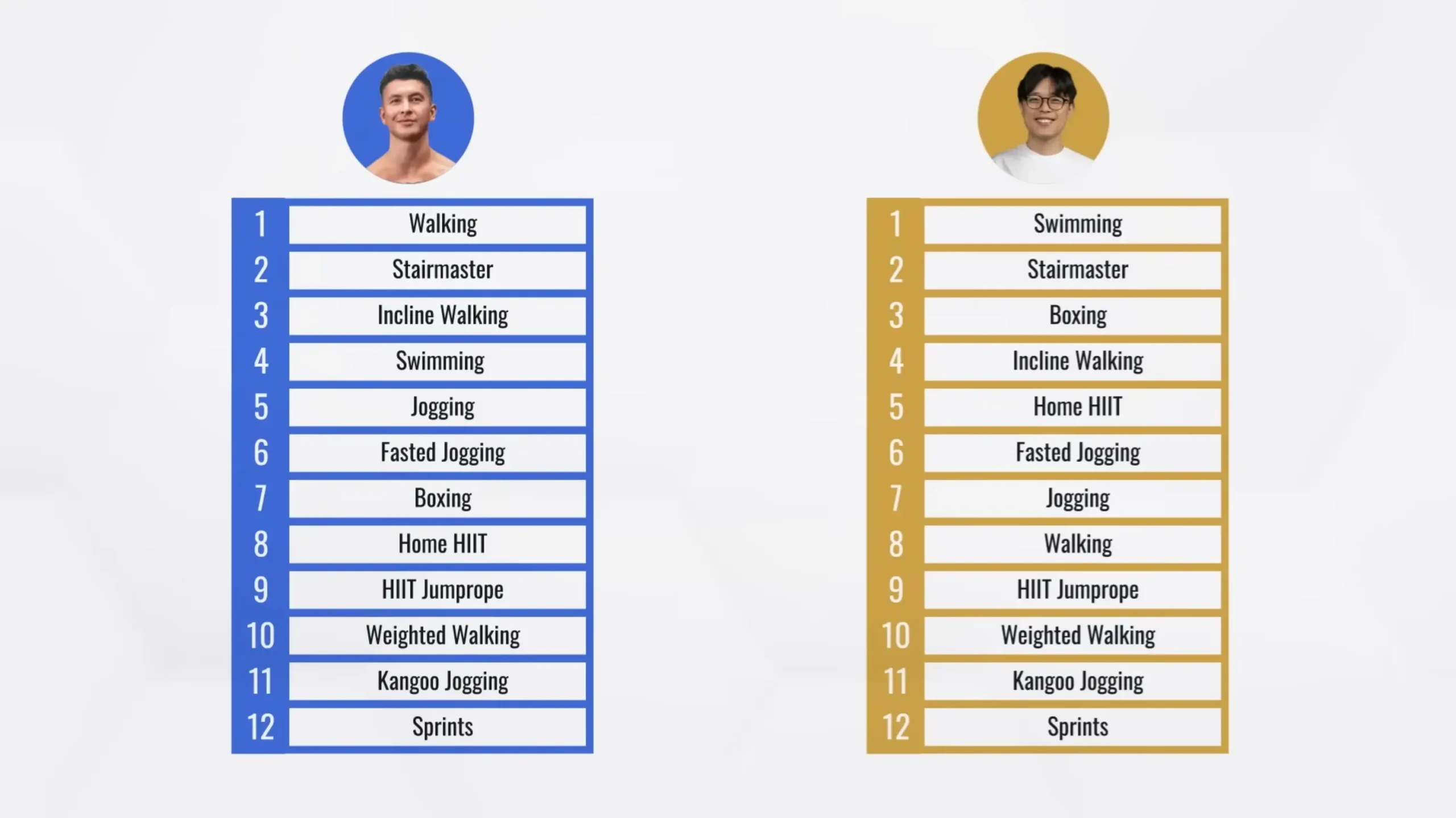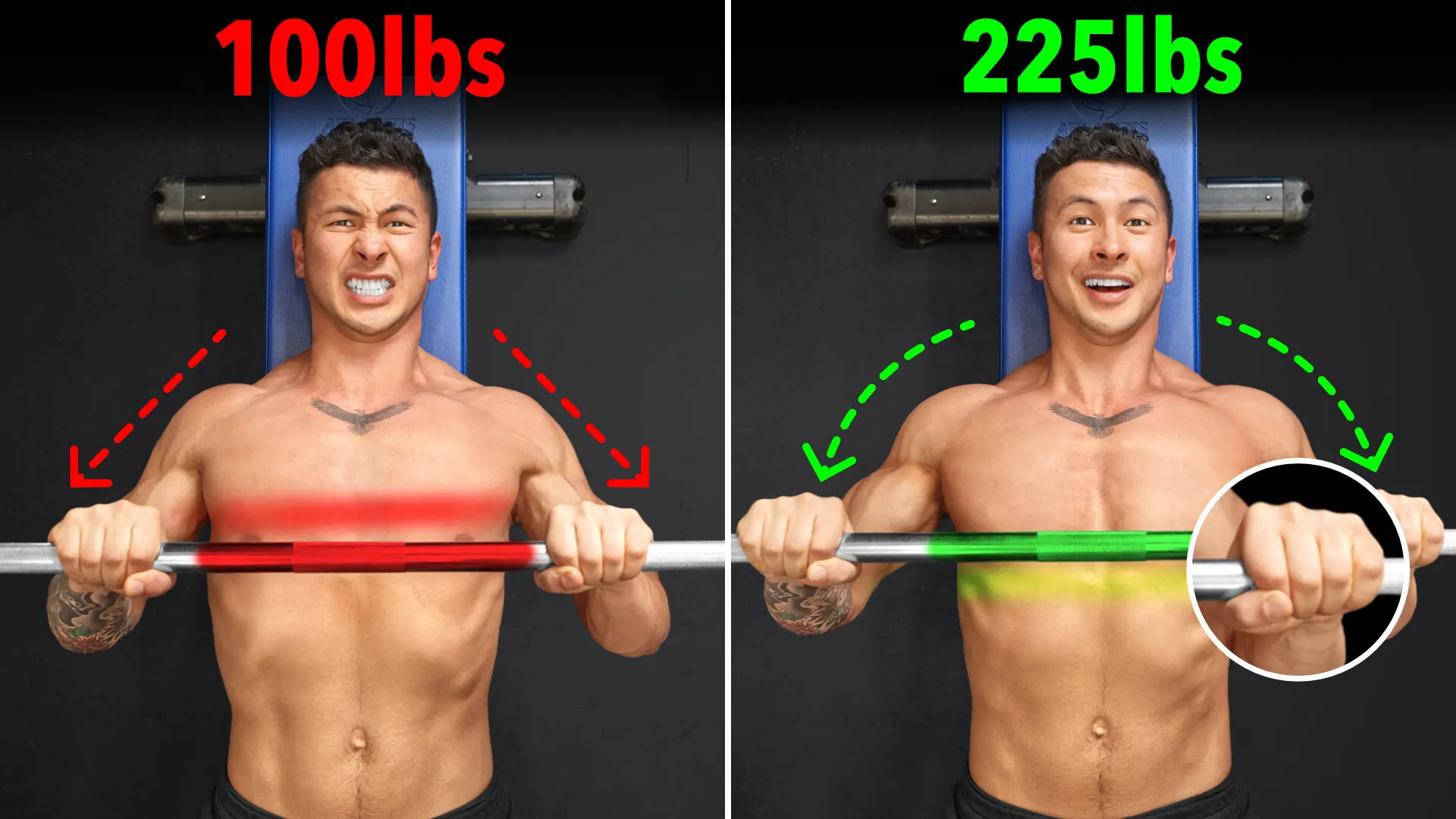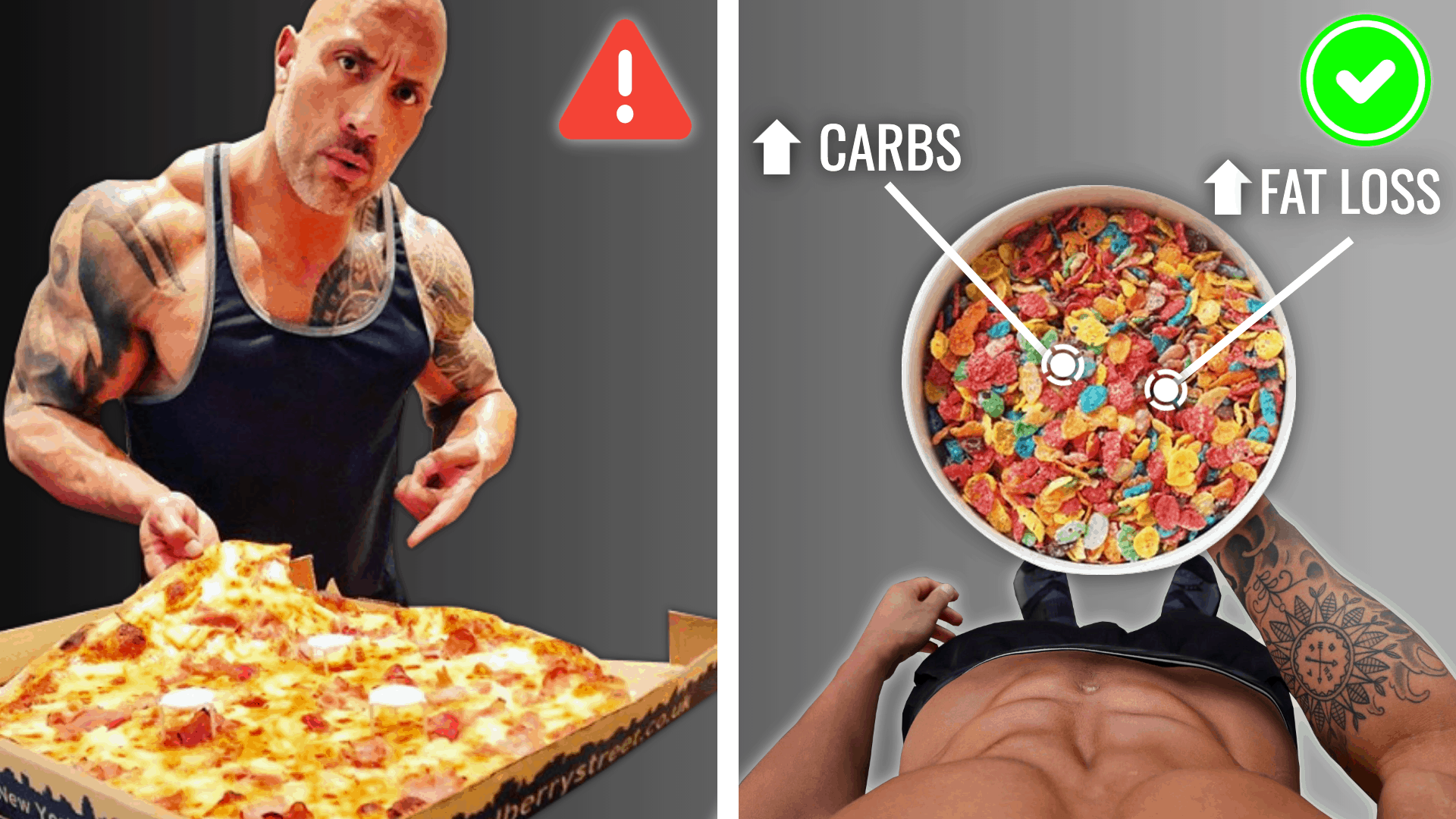
How To Use Cheat Meals To Boost Fat Loss (3 Science-Based Tips)
Are cheat meals good or bad? The truth is that cheat meals can indeed help boost your fat loss results as opposed to hinder them. But you have to use them correctly. Learn how in this article.
I think we’re all pretty familiar with The Rock’s epic cheat meals. Once a week, typically on Sundays, he indulges in massive amounts of food in one sitting. And at first glance, you’d probably think that incorporating cheat meals into your regimen is probably a good idea. I mean, just look at his figure!
Not so fast. Because cheat meals are actually one of the most misunderstood concepts in fitness. If you were to try to copy this and blindly incorporate one of these 2-3 thousand calorie cheat meals into your routine, you could easily offset the last few weeks of dieting progress you’ve made. And the deficit you’ve created.
You see, what most people don’t realize is that for guys like The Rock, their cheat meals are actually the furthest thing from that. It’s instead a calculated part of his very carefully thought-out program.
If you take a deeper look into the behind-the-scenes of his regimen, you’d discover that these weekly cheat meals are:
- Monitored by his coach, and
- A way for him to carb up. This makes him look fuller, more vascular, and more striated during his shoots the following day. All this, without sabotaging his progress.
Whereas on his other days he’s on a strict, lower carb regimen with carefully planned-out meals.
And there is a science to this. Cheat meals, when properly integrated, do provide benefits that can help boost your fat loss results as opposed to hinder them.
And as I’ve said in the past, your nutrition will hands down be the most important factor when it comes to transforming your body. I used to be completely lost as to how to approach my nutrition and I know a lot of you out there are as well. This is exactly why within my Built With Science programs, I not only cover training but also stress the importance of nutrition. In fact, I even developed a custom-built nutrition software designed to optimize your diet based on your own stats and goal:
Click the button below to take my analysis quiz to discover the best program for you:
↓
How Can Cheat Meals Help Boost Your Fat Loss Results?
They Provide Psychological Benefits
First off and arguably most important is the psychological benefit they provide. This was shown in a 2016 paper that compared “planned cheating” once a week when dieting versus just strictly dieting 7 days a week.
They found that the cheat meal group exhibited greater long-term adherence and enjoyment in their diet. Because they had these planned deviations or cheat meals to work towards and look forward to. Whereas the other group would develop “irresistible urges” and cravings that eventually led many of them to binge. And get completely off track with their diet as a result.
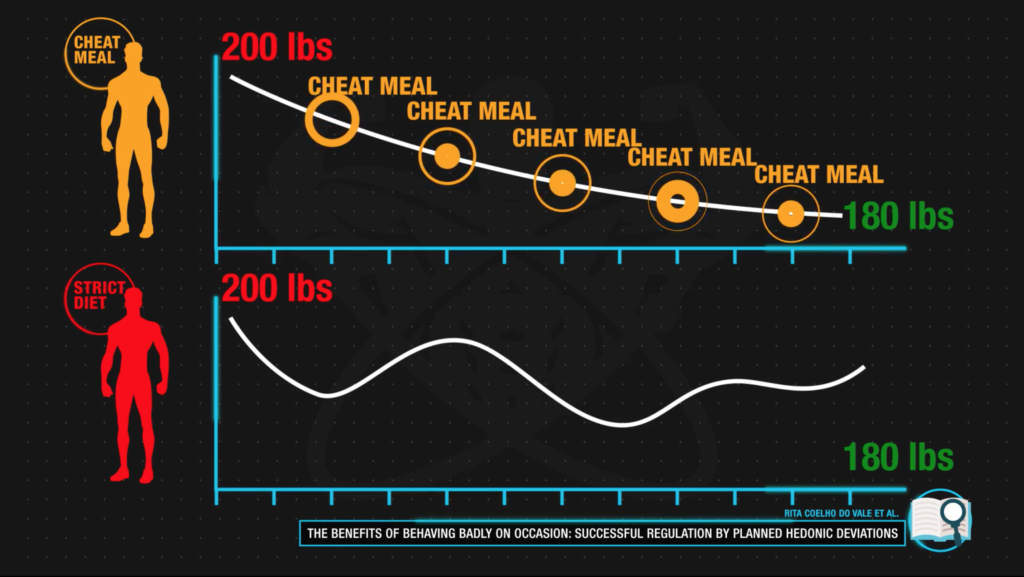
Cheat Meals Also Help Counteract The Physiological Effects Of Long-Term Dieting
And second of all are the potential physiological benefits that they provide to help boost your fat loss. Now, these benefits become increasingly important the leaner you get. And the longer you’ve been dieting for. Because as your dieting for longer and losing more body fat, your body tries to fight back by doing a few things:
- It decreases your leptin hormone levels. Which, as a result, increases your appetite.
- It decreases your energy expenditure by causing you to move less and just burning less calories to function day-to-day. And this then leads to fat loss plateaus.
- Your muscle glycogen levels gradually decrease as they’re being used for energy. This leads to tougher workouts and decrements in your performance.
Which all slows down your fat loss and just makes dieting less enjoyable.
And this is where cheat meals can come in handy.
Because when done properly, the temporary increase in calories and carbs that they provide have been shown to:
- Partially counteract these various adaptations. That means better appetite suppression, higher energy expenditure, and increased performance in the following days.
- Add muscle fullness, that you’ll experience. Hence why guys like The Rock regularly incorporate them especially before big shoots.
So how can you now go about incorporating them into your plan to boost your results instead of hinder them?
Well, there are a couple of 'cheat meal rules' you’ll want to keep in mind.
Plan Your Cheat Meals Into Your Weekly Calories
First, you need to ensure that you’re planning this cheat meal into your weekly diet. In my opinion, the best way to do this is to allocate one day of the week to be what’s called a re-feed day. This is simply a day where you take a “break” from your diet. You do so by now eating at your maintenance calories or at a slight surplus, as opposed to a deficit like you’ve been doing all week.
This way, you’ll be able to create a deficit and burn fat throughout the week. And then on your re-feed day, you’ll have 500 more calories or so to dedicate to your cheat meal. This helps you kickstart your next week without gaining any additional fat in the process. If you wanted to really indulge and have a very high-calorie cheat meal, you can make even more room for it. How? Well, by eating a little less on the days leading up to it. This way, you'll save most of your calories for that day for your cheat meal.
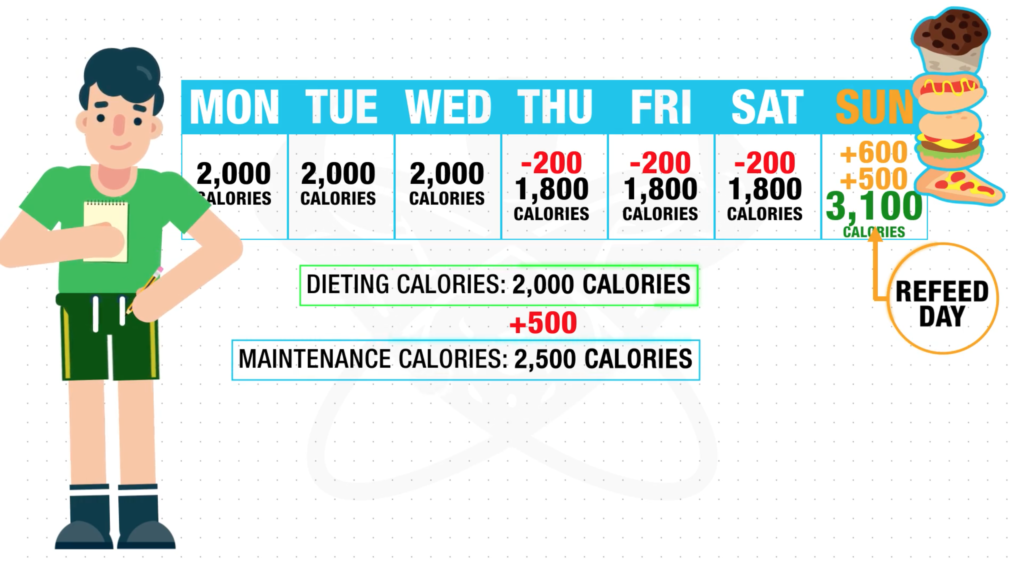
This is exactly how The Rock is able to incorporate his cheat meals. It seems when he’s prepping for movies, during the week he follows a rigorous carb depletion diet. His meals are all pre-made and calculated for him. As a result, he’s able to fit in a high-calorie cheat meal once a week or so to benefit him. As opposed to set him back.
Be Mindful Of How Quickly Calories Can Add Up
But the key is to fit them into your weekly calorie allowance such that you’re still making progress every week. And with that being said, be aware of how quickly your calories can add up during your cheat meals. For example, if you were to head on over to Five Guys for your cheat meal and get yourself:
- A bacon cheeseburger (920 calories),
- A regular side of fries (950 calories),
- And a vanilla milkshake (670 calories) to wash it all down,
That would amount to a whopping 2,500 calorie meal. This meal alone would be enough to almost completely offset the deficit you created. And the fat you lost during that week!
This is why we even see in the research like in this 2008 paper, individuals who successfully create a deficit by dieting and exercising throughout the week, yet on weekends mindlessly go-off track with their eating, actually ended up either not losing any weight or even gained a bit of weight (0.077kg weekly) week-after-week. This is due to the higher weekend calorie intake offsetting their dieting efforts completely.
Believe me, I’m not trying to be a Debbie downer here on your cheat meals. But I just want you to be mindful of how easily they can set you back if you don’t structure them in properly.
Your Cheat Meals Should Be High Carb, Low Fat
Next, let’s talk about the actual composition of your cheat meal. This is important when it comes to counteracting the negative physiological adaptations from dieting most effectively. And in this case, carbs are actually your best friend. Current scientific literature suggests that on your weekly re-feed day where you’ll fit your cheat meal into, preference should be given to increase your carbohydrate intake. As opposed to increasing your intake of fat or protein.
Carbs Boost Your Leptin Levels And Create Muscle Fullness
This is because when compared to fat and protein, carbs:
- Have the greatest impact on boosting your leptin levels. As discussed earlier, this can help with suppressing your appetite and increasing your energy expenditure when dieting.
- Best help refill your muscle glycogen to create more muscle fullness. And can potentially augment your performance and the anabolic response you experience in your following workouts.
This is why you’ll notice that The Rock’s cheat meals are typically carb-heavy with foods like sushi, for example.
You don't have to eat a mountain-load of sushi, though. Some other great options include pasta, your favorite cereals, candy, ice cream and waffles or pancakes with syrup, for example.
Given that they’re all high in carbs and relatively lower in fat. On the other hand, if the meal that you’re really craving is quite high in fat, it would be a good idea to try to limit the fat on it when possible. For example, by minimizing extra sauces and oils.
But wait. How does this apply to your diet in real-life? Don't worry. Our 3-on-1 coaching program can help. You will not only have a dietitian to customize your nutrition plan, but also a coach to focus on your training plans - plus, there's me to answer your questions every month! You'll achieve your dream physique in record-breaking time. Sounds good? Let's get started then:
Click the button below to find out more about the 3-on-1 coaching program:
↓
Cheat Meals High In Carbs Help Minimize Your Fat Gain Even When You Overeat
There's another potential bonus of keeping your cheat meals carb dominant. In the event that you do splurge on your calories and overeat quite a bit, research has found that in subjects who overate by the same amount of calories with either fat or carbs:
- Both groups gained the same amount of total weight as a result,
- But a higher percentage of this weight gain was fat for subjects that predominantly overate with fat as opposed to carbs.
With the difference averaging out to be around 10%. Meaning that theoretically, you’d save 0.1 lbs of fat from being put on for every lb of weight that you gain from overeating if you were to do so primarily with carbs. Why is this so? Well, it's thought to be due to fats requiring the least energy to digest it. And also having the least impact on boosting your movement and overall energy expenditure.
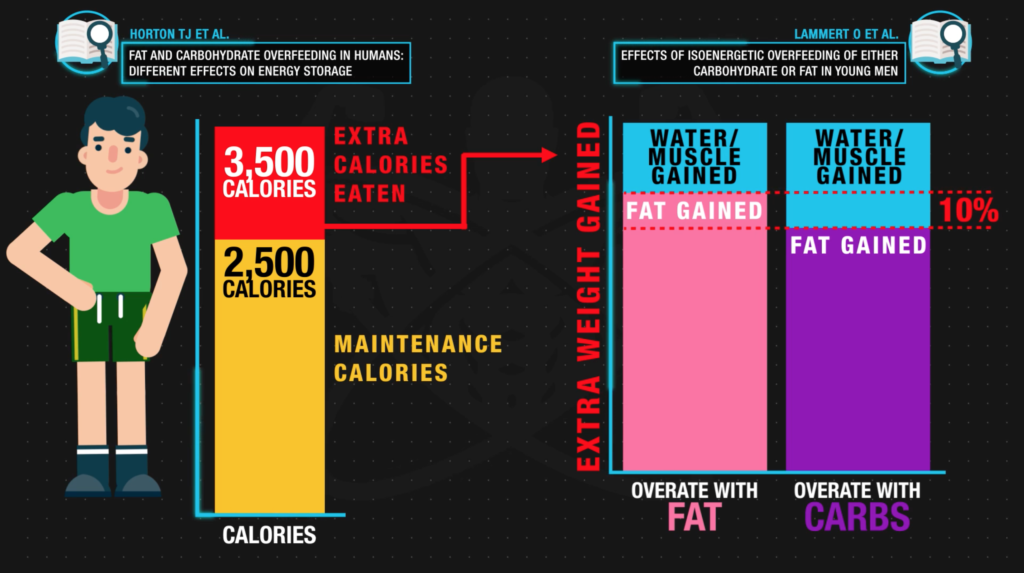
Interestingly though, research has consistently shown that overeating with predominantly protein actually results in the least amount of added fat gain when compared to carbs and fats. This may be due to high protein diets inhibiting lipogenesis in the liver.
Or, in other words, the formation of fat. Meaning that if you’re going to splurge and overeat, doing so with carbs and ideally protein-rich foods has the greatest likelihood of minimizing fat gain. While also potentially preventing you from overeating in the first place due to its highly satiating effect.
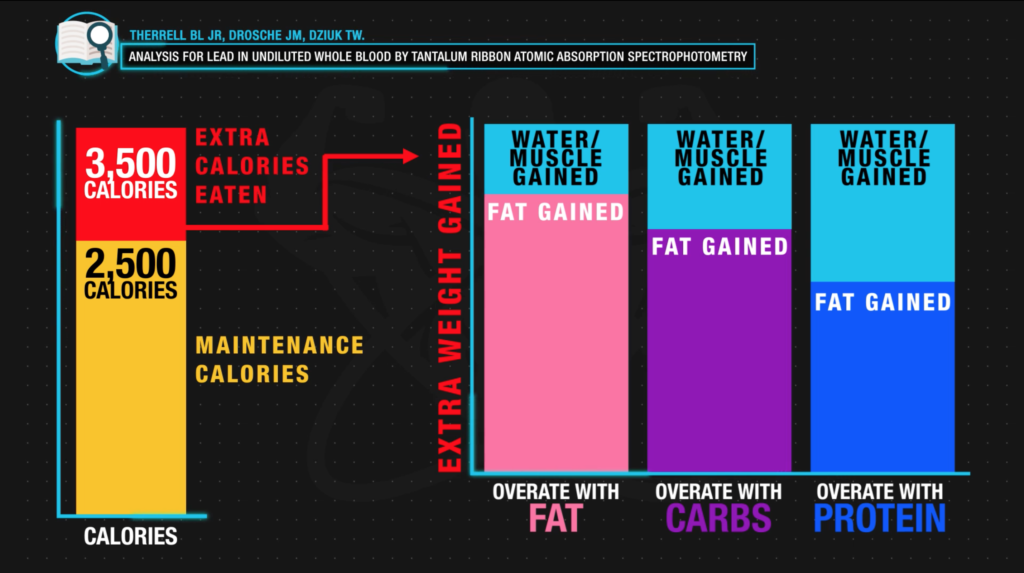
Avoid Failure Cascades
Lastly, it’s important that you don’t let your weekly cheat meals trigger you to completely abandon your goals. And proceed to turn your cheat meal into a cheat day, and then turn that into a cheat week, and then fail to ever get back on track. Believe me, it’s very easy for this to happen. Especially as you’ve been dieting for longer. I mean I even struggled with this and had slip-ups after a long diet. For me, a cheat meal did, in fact, turn into a cheat week. And I’d eat literally everything and anything with that “what the hell” mentality. This failure cascade was very hard to break. And can overwhelm you with tremendous guilt and regret by the end of it.
So to prevent this from happening, first, I want you to take the word “cheat meal” out of your vocabulary. I use it in this article just because it’s a commonly understood term. But the very word itself has some negative connotations and guilt associated with it.
Instead, name it a “planned indulgence” or “calculated splurge” or “celebration meal”, for example. Because it’s not a meal that you should feel bad or guilty about at all. It’s instead an integral part of your carefully calculated plan.
Secondly, if you’re struggling with cravings and all you can think about is your upcoming cheat meal and “reward” for your diet all week, then what this implies is that your current diet just isn’t sustainable for whatever reason. You may be in too much of a deficit.
Or are just on too strict of a diet. Either way, it’s a sign that you need to consider restructuring your diet such that you’re not completely depriving yourself. And that you’re eating meals and using recipes that you genuinely enjoy, find satisfying, and hits those cravings. Otherwise, you’re just setting yourself up for failure in the long run.
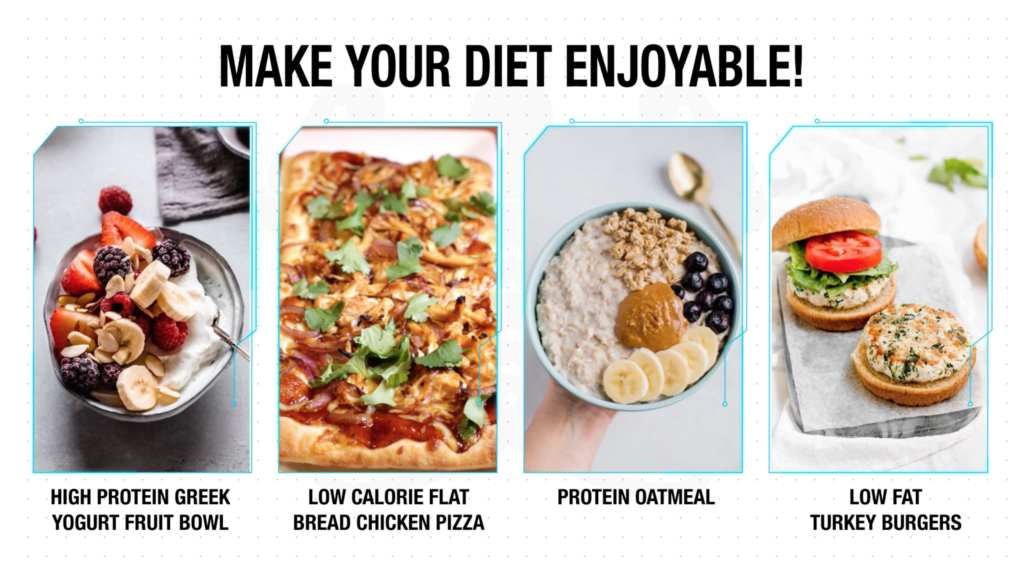
How To Make Use Of Cheat Meals: Takeaway
So here’s a summary of the main points I want you to take home from this article. At the end of the day though guys, don’t overthink it too much.
- Pre-plan your “planned indulgences” into your weekly plan and calorie allowance. A good way to do this is to pick 1 day every week as a “re-feed” day where you eat at maintenance calories. Fit your celebration meal into this day since you’ll have more calories to play with. You can also “save up” calories earlier on in the week/day to have even more room for this meal.
- Try to keep your planned indulgences relatively carb-heavy and lower in fat. This helps best counteract the negative physiological effects of dieting. And, another bonus of this is that if you overeat on mainly protein/carbs as compared to fat, you won’t store as much of the excess calories as fat.
- Avoid letting this meal take you off track. Enjoy the meal, don’t feel guilty about it, and just think of it as an integral part of your plan.
Be strategic with your planned indulgences if you choose to include them, but enjoy yourself. Remember that at the end of the day, what’s most important is the calorie deficit that you create over time. And your long-term adherence to that calorie deficit. This is why it’s vital that you set up your diet based on what will enable you to accomplish those two factors most effectively. And if you do get off track, don’t beat yourself up over it. Get back on the saddle and take it day by day.
And for an easy to follow science-based program that sets everything up for you, such that you know exactly how to train AND what to eat week after week without depriving yourself of the foods you love, so that you can lean down and burn off fat most effectively with science:
Click the button below to take my analysis quiz to discover the best program for you:
↓
I hope you enjoyed this article! Don’t forget to give me a follow and connect with me on Instagram, Facebook, and Youtube as well, in order to stay up to date with my content.

